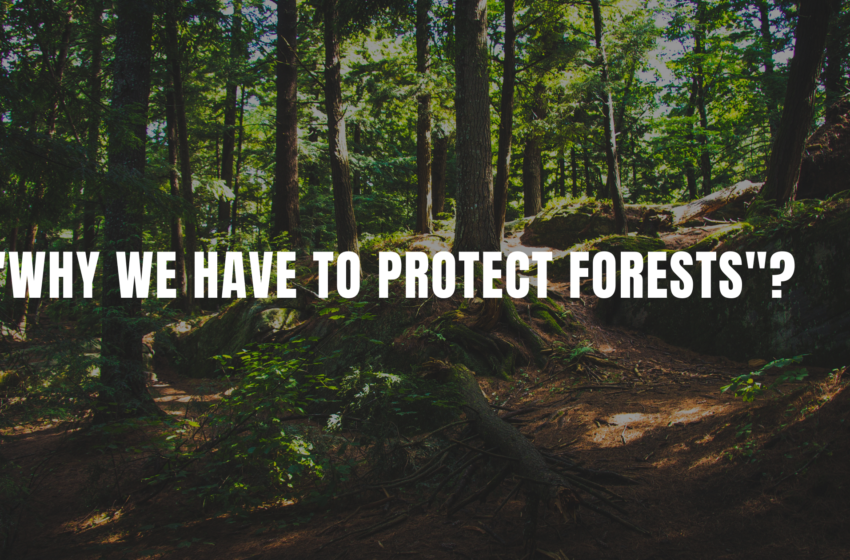“Why we have to protect forests”?

Forest Protection: The need of the hour around the world
Globalization, through industrial materialism, has taken a heavy toll. Flora and fauna of the planet are under serious threat. Animals are getting hunted and killed for pleasure, profit, and pomposity. While forests are being destroyed and devastated by various forces like
human-powered deforestation, forest fires, and low rainfall are not helping either. Of all three, the first one is the main culprit. We cut down trees and remove woody areas for timber trade and housing. We also destroy jungles to reclaim land for agriculture. All these human actions have adverse effects.
Importance of forests
Spiritual and mystic traditions hold trees as sacred, ancient, and mysterious. They also develop a strong, emotional bond as greenery nourishes life. Of course, modern science does not disregard their importance either. Woodlands get appreciated and studied for their breathtaking biodiversity.
The scientific community also considers forests as the best defense against climate change. The jungles may still hold many secrets. But the things that we already know should suffice in understanding the need for forest protection, preservation, and expansion –
- Diverse forests cover about 30% of the planet’s surface. They convert carbon dioxide into oxygen and help us breathe fresh air. Studies say Amazon jungles contribute 20% of this air.
- Forests capture rainwater and improve the size of the water table. They also provide an ideal eco-system for water bodies, regulate the water cycles, and quench our thirst for survival.
- The deep jungles have a lot of biomass and humus. They trap CO2 and reduce adverse climatic effects. The soil content is also very useful in enriching the fertility of farmlands.
- The tall, healthy trees send deep roots into the earth. They fight soil erosion and reduce the impact of storms and floodwaters.
- More than 80% of global biodiversity is in the forests. They are veritable powerhouses of chemicals, animals, medicines, minerals, etc.
- Research shows that more than a billion people survive on forests. It is not just about the tribal people and their livelihoods. Even urban and rural folk, along with townsmen, depend on them.
- They provide us raw materials for healthcare products and cosmetics. Forest produce is also in need by humanity for furniture, stationery, and of course, food.
Why protect the forests?
World Wildlife Fund (WWF) estimates that more than 8 million hectares of forests vanish every year. In the last 50 years, the jungles of Amazon, Southeast Asia, and Africa lost more than 17% of their green cover. It has led to the quick disappearance of many plants, animals, insects, worms, flies, etc.
The alarming rate of biodiversity disappearance does not augur well for us. It is not just about human conscience, but also the planet’s delicate balance. The pollution levels are also rising every year around the world. The loss of woodlands also disturbs the balance of vital gases in the atmosphere.
The human footprint has become too large due to commercial, industrial, and agricultural activities. The life-enriching resources are getting depleted due to human energy consumption also. In such circumstances, the only recourse is to protect forests proactively.



